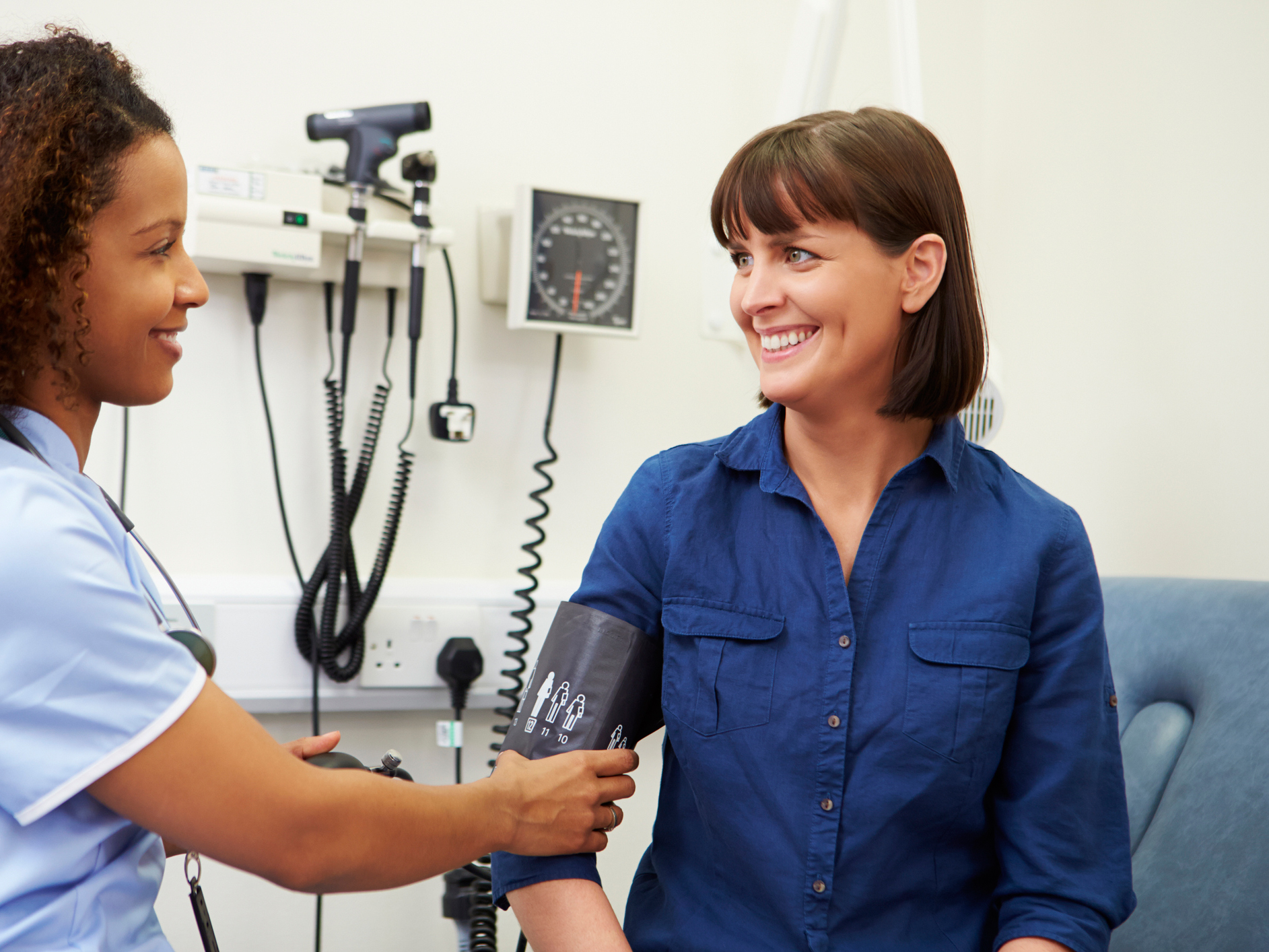Get Easy Health Digest™ in your inbox and don’t miss a thing when you subscribe today. Plus, get the free bonus report, Mother Nature’s Tips, Tricks and Remedies for Cholesterol, Blood Pressure & Blood Sugar as my way of saying welcome to the community!
The connection between cake, cookies and high blood pressure

You know that pies, cookies, cakes, and cobblers aren’t exactly health food. But if you’re anything like me, you still indulge from time to time — especially during the holiday season.
I mean, come on… who can turn down homemade pumpkin pie with fresh whipped cream? Or buttery, melt-in-your-mouth kolackies? Or warm apple crisp with ice cream? You’d need the willpower of a saint. Or a very good reason…
Like an intense desire to get in shape. Or a stubborn case of diabetes. Or even high blood pressure.
Surprised by the last one? Maybe you didn’t know that added sugar affected your blood pressure. It does.
In fact, a new study shows post-menopausal women in particular need to think twice about that piece of cake if they’re prone to high blood pressure…
The sugar that spikes blood pressure most
As a rule, blood pressure tends to go up after menopause. Many doctors think it has something to do with changing hormones. But there’s another factor adding to the problem — added sugar.
A new study from researchers at the University of Delaware shows there’s a strong link between added sugar and high blood pressure in postmenopausal women.
The study included 128 people (57 men and 71 women) between 65 and 80 years old. Researchers tracked added sugar intake and blood pressure. And guess what?
Related: The sugar danger you never hear about
Women who ate the most added sugar were more likely to have high blood pressure. This held true after accounting for other blood pressure factors like age, income, body mass index, physical activity levels, daily calorie intake, and blood pressure medication use.
Here’s another piece of helpful information…
Researchers homed in on a few different types of added sugar to see which one affected blood pressure the most: sucrose (table sugar), glucose (found in candy, sports drinks, and desserts) and fructose (a fruit sugar and the source of high-fructose corn syrup). Guess which one was the worst for blood pressure?
Your old friend fructose. So, steer clear of foods that contain high fructose corn syrup, if nothing else.
Don’t fret: You can fight high blood pressure with fruit
At first, this study seems like bad news. No more desserts? That’s no fun. But look at the bright side…
If you’re a woman, reducing added sugar is a simple way to lower your blood pressure. Researchers estimated that cutting out 2.3 teaspoons of added sugar per day would result in an 8.4 mmHg drop in systolic BP and a 3.7 mmHg drop in diastolic BP.
And there’s was another bright spot in this study…
Researchers found a healthy way to satisfy your sweet tooth and lower your blood pressure. What was it?
Eating fruit.
Related: Eat this fruit to lower blood pressure in 2 hours
Men and women who ate more whole fruit had lower diastolic blood pressure. And past studies found that specific fruits (like grapes, tart cherries, and blueberries) lower blood pressure.
You may be wondering… why would fruit lower blood pressure? It’s full of sugar too.
Well, even though fruit contains sugar, it also contains fiber, antioxidants, vitamins, minerals, and other healthy compounds. These compounds change the way your body processes the sugar from fruit and provide other health perks.
So, fill your plate up with fruit this season if you want healthy blood pressure. And if occasionally, that fruit comes with a little added sugar and a flaky pie crust, I won’t tell 🙂
Editor’s note: Are you feeling unusually tired? You may think this is normal aging, but the problem could be your master hormone. When it’s not working, your risk of age-related diseases skyrockets. To reset what many call “the trigger for all disease” and live better, longer, click here to discover The Insulin Factor: How to Repair Your Body’s Master Controller and Conquer Chronic Disease!
Sources:













